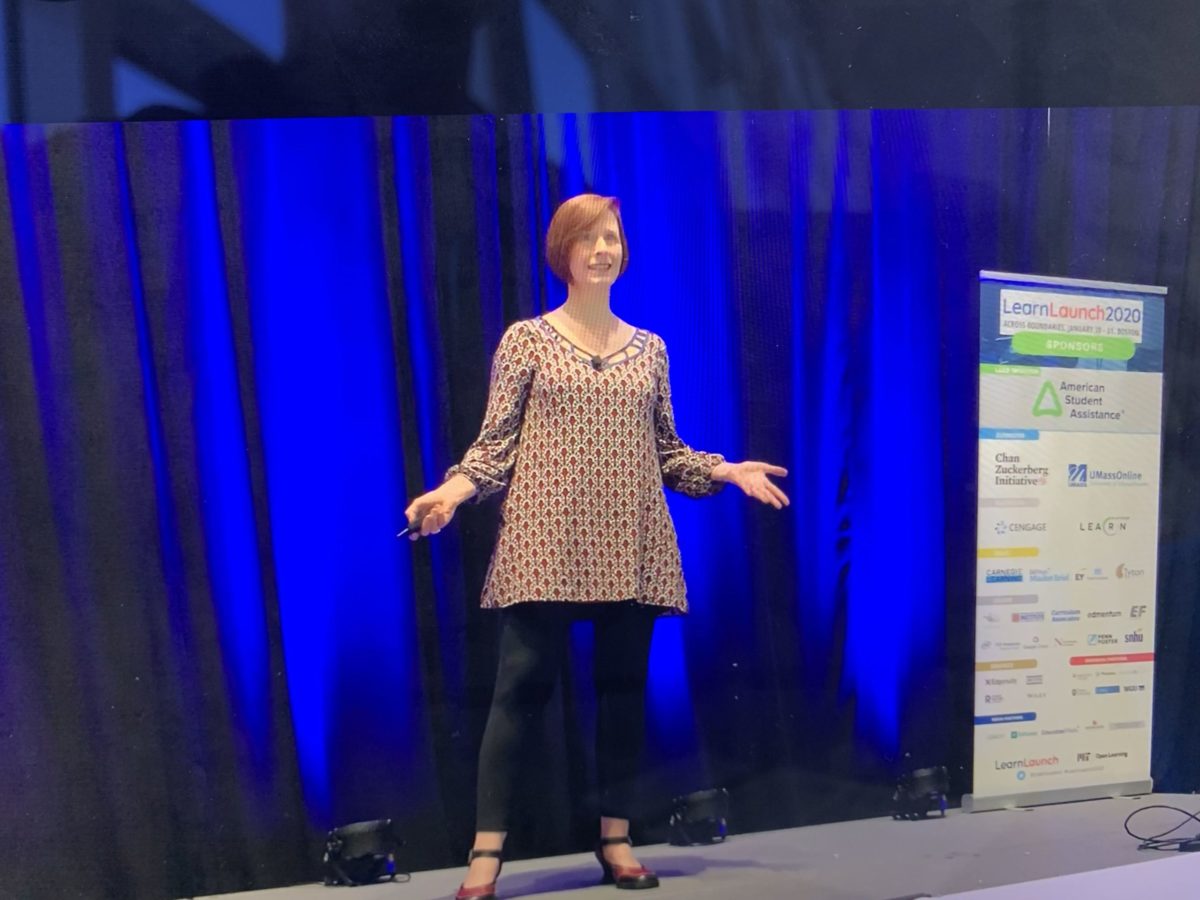Towson-based InferCabulary stood out on the stage in Boston last week.
CEO Beth Lawrence pitched the visual vocabulary tool to a win at LearnLaunch Across Boundaries, a noted edtech conference.
Taking first place in Friday’s finals, InferCabulary earned $25,000 in Google credit and access to industry mentors. It was the culmination of a pitch competition that began with quarterfinals drawing 100 entrepreneurs. Ten companies, including InferCabulary, then advanced to Thursday’s semifinals. Infercabulary was named among the two finalists that pitched before about 300 attendees on Friday, then named by judges as the winner.
“We’re thrilled to win this competition and excited for this success to lead into our next stage of growth,” Lawrence said. “We truly believe that giving all children the opportunity to improve their vocabulary skills through engaging learning puts them on the path to achieving lifelong success.”
Founded by Lawrence and Deena Seifert — both speech language pathologists — the TU Incubator-based company’s tool is designed for first- through 12th-grade students. It uses images to teach vocabulary with critical thinking skills that requires students to infer the meaning of the words.
During her pitch, Lawrence described how teaching reading, writing and vocabulary is important not just during school, but also in college and the workforce. She cited National Center for Education Statistics data that 14% of adults can barely read, and another 29% are reading at a sixth grade level.
Lawrence said 150 schools and districts have signed on to use the app, paying on a SaaS model. This week, the four-person team is launching beta testing of a new version. It includes a tool allowing teachers to copy and paste text, then creates a game based on words in the system.
“Now, teachers can search for books ranging from ‘Paddington‘ to ‘Of Mice and Men,’ and assign words by chapter from those books, or create lessons from any text,” Lawrence said.







